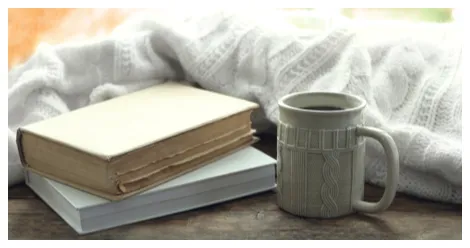
The Problem With Biography
This content contains affiliate links. When you buy through these links, we may earn an affiliate commission.
Sometimes the worst thing you can do is read a biography of your favorite writer. Real lives are rarely as clean cut as fictional ones. The boring bits always outnumber the exciting bits. And biographers have a habit of intruding with unwanted opinions, interpretations or – in the worst cases – agendas.
Other times it’s simply a case of T.M.I.
I was so disappointed when her biographer revealed that Edna St. Vincent Millay was not always the independent, revolutionary poet I wanted her to be (Savage Beauty: The Life of Edna St. Vincent Millay). Towards the end of her life, her friends feared she was caught in an abusive marriage.
Margaret Wise Brown (Margaret Wise Brown: Awakened by the Moon) didn’t particularly care for children, despite writing classics of children’s literature.
Everything I’d ever been told about Emily Dickinson – and I mean EVERYTHING – was a lie (Lives Like Loaded Guns: Emily Dickinson & Her Family’s Feuds).
My favorite biographies are of women writers. I go to them seeking role models and, if I’m honest, a blueprint on how to lead an exciting, creative, and interesting life. But I’m guilty of approaching these biographies as if they were another story created for my entertainment. The truth is that life is messier and more complicated than fiction. It’s not a performance designed to amuse. There’s no author carefully structuring the plot, moving the action towards a single point and tying up the loose threads as she goes. All a biographer really gets to do is assemble facts. She can try to assign significance to specific events, identify milestones and important relationships – link it all into a chain of causes and effects that sheds light on how an individual spent their life. But very seldom does she get to answer, with any authority, the what or why of someone’s existance.
Did you know that Martha Gellhorn (Martha Gellhorn: A Twentieth Century Life) adopted a son from an Italian orphanage only, by some accounts, to grow bored with the day-to-day raising of a child? That she felt her work as a journalist was overshadowed by her brief marriage to Hemingway? Or that she eventually committed suicide?
Zora Neale Hurston died poor, obscure, and was buried in an unmarked grave (Zora Neale Hurston: A Life in Letters).
Virginia Woolf suffered from lifelong depression and famously committed suicide by drowning herself in a river. Her biographer and nephew, Quentin Bell (Virginia Woolf: A Biography), relates a less well known anecdote in the biography he wrote about his famous aunt. Woolf and her husband stockpiled their gasoline rations during WWII in case of a German invasion. Leonard Woolf was Jewish, and the couple had heard the rumors. The plan was to die together by carbon monoxide poisoning in the garage rather than risk being sent to the concentration camps.
A bad biographer tries to instill drama into her subject’s life where none actually existed. An example of this is the recent biography I read about Charlotte Brontë by Claire Harman (Charlotte Brontë: A Fiery Heart). While Harman does a fairly decent job of examining Bronte’s life, career, and relationships (even shedding new light on the cause of her death), her insistence on focusing on the writer’s failed romantic entanglements is disheartening. Brontë was an author who, particularly for her time period, created unusual and enlightened heroines – women who asserted power in their relationships. Jane Eyre leaves Rochester. Villette ends with the heroine and narrator describing the three years she lives independently, while her lover is away at sea, as the happiest of her life. Yet Harman spends more time on contemporary descriptions, Brontë’s physical unattractiveness and social awkwardness than on the revolutionary nature of her ideas. She makes dire predictions on what would have happened to Brontë’s writing after her marriage (had she lived) based on the flimsiest of evidence. She is more interested in her subject’s tragedies than her triumphs. And who can entirely blame her? Tragedies make for good reading.
Which doesn’t seem fair. I still love biographies, but I now try to remain conscious that none of these women expected their lives to be paged as if it were another one of their novels. The problems of biography lay entirely with readers and biographers, and are the product of our expectations and preconceptions. We want to turn a lifetime of experiences into a single story arc – and that’s not how life works.








